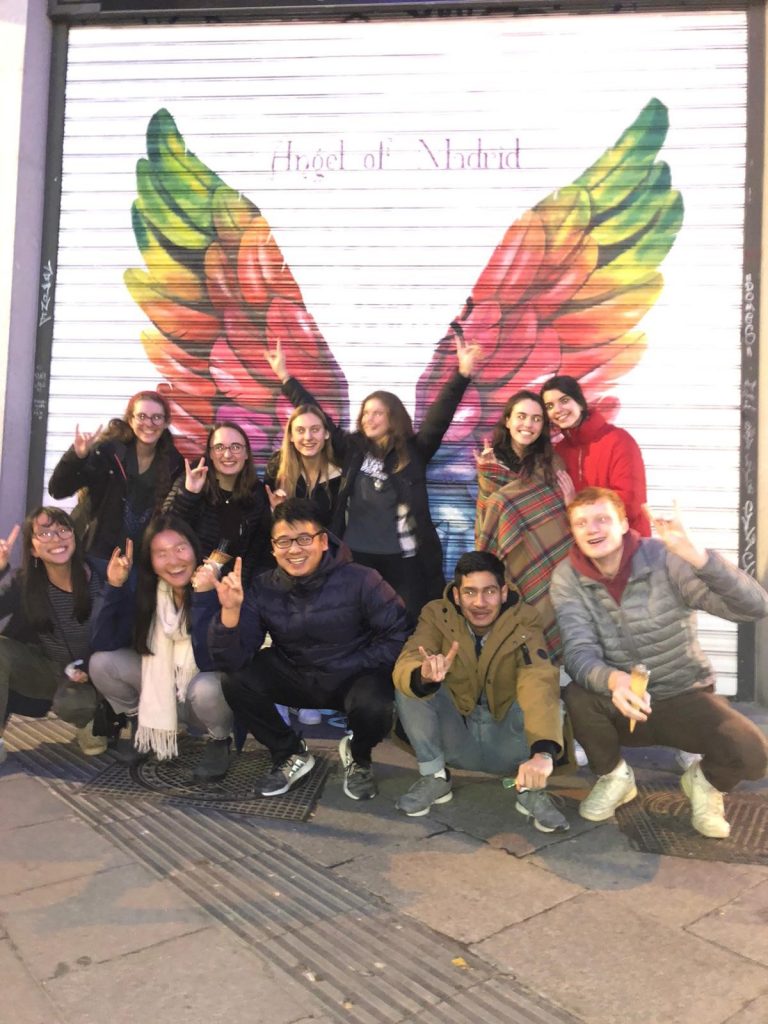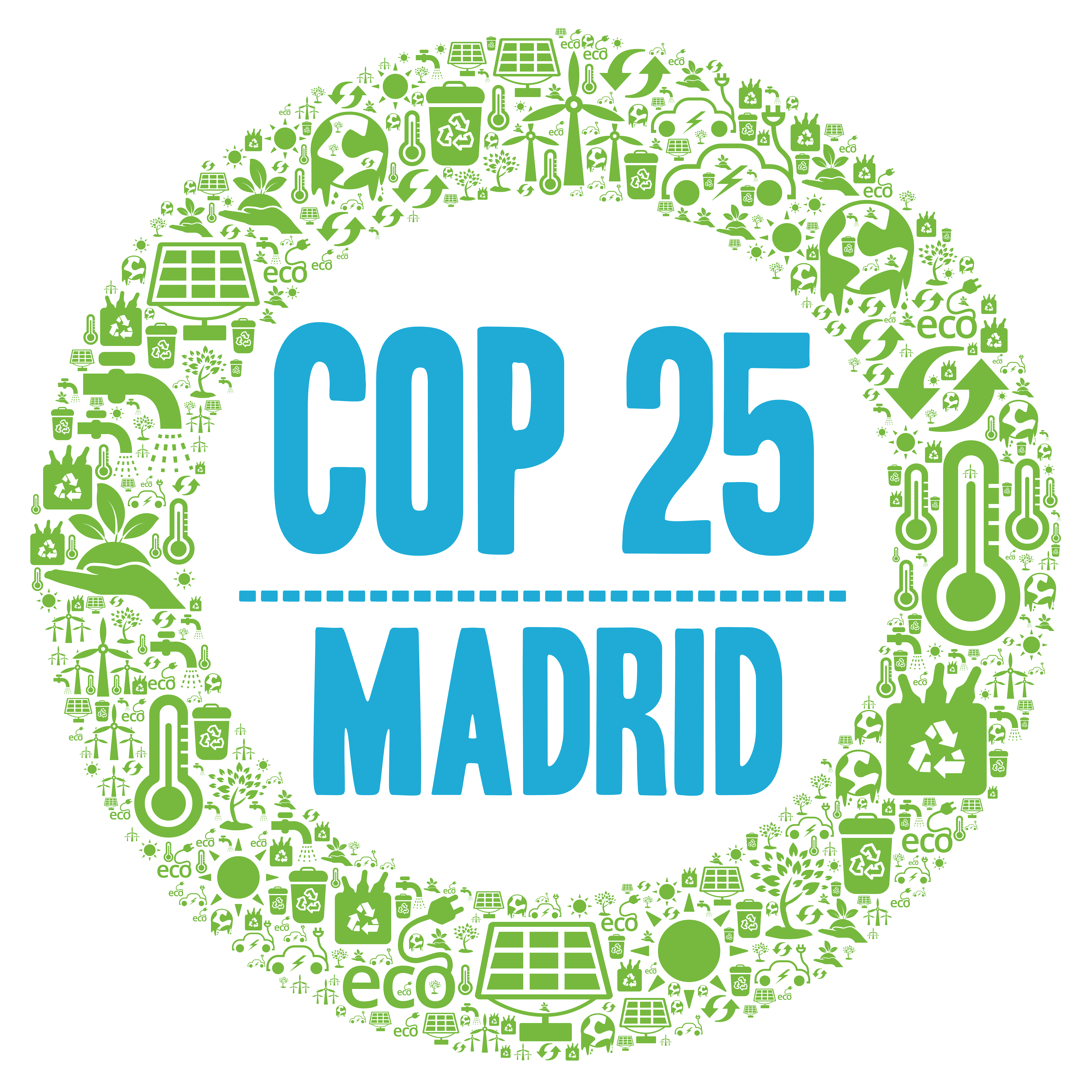This year, UConn sent 17 students to the 25th United Nations Conference of Parties Climate Conference (COP). The COP is an opportunity for world climate experts, activists, and leaders to meet and discuss how to best implement measures to combat climate change. UConn COP25 students were asked to write about their initial impressions of this world event. For excerpts, see below.
Approaching Environmental Issues on an Individual Level
Sarah Schechter – Environmental Studies and Anthropology
We constantly hear the phrase “think globally, act locally,” but how do we actually put that into practice? When we act on a local level we are trying to benefit the town or municipality that we are working with, but what if that’s still too large of a scope?
Walking into Day 1 of COP25 I was unsure of what to expect, in awe of the bright lights and intricate booths. One was made from cardboard, another had a wall of plants, and still another had a giant Earth sitting in a dish of ice.
I made my way to the Intergovernmental Panel on Climate Change (IPCC) booth, prepared to discuss volunteering with them later in the week. I was then introduced to the Vice-Chair of the IPCC, Dr. Youba Sokona, who asked the group “What are you doing on an individual level?” We started to answer with what was being done in our communities, but he adamantly asked again, “But what are you doing?”
The Impacts of Climate Change on Moana and Pacific Island Nations
Lauren Pawlowski – Environmental Studies and Economics
Part of the magic of COP is finding out about little happenings from talking to different people you meet. Towards the end of the day, a group of the UConn@COP25 Fellows and I were tired, hungry, and mentally drained, but we met a funny man from the Himalayas who convinced us to stay longer.
He told us about his work in planting millions of mangrove trees in the Pacific Islands region and why this was so important to restoring coastal ecosystems and maintaining indigenous communities. His passion for the oceans drew us to stay and participate in the ceremonial welcome event at the Moana Blue Pacific Pavilion, which was happening in 10 minutes. It started out with the island natives performing songs and saying blessings in their indigenous languages. They also taught us traditional greetings in these languages as well. I quickly learned that the term “moana” is used to describe the sea or the ocean and that these island communities from countries like Fiji, New Zealand, and Tuvalu are very proud to be presenting a unified front focused on the importance of oceans at COP25.

Thinking Beyond Borders & Labels – The Reality of Climate Migration
Megan Ferris – Environmental Science
What I was most excited about seeing at COP was the involvement and discussions of climate migrants. During previous years at the COP, the term “climate migrant” wasn’t mentioned quite as much as it already has been in several of the opening panel discussions at COP25. The concept of environmental migration — a very politically — and socioeconomically-charged issue has been swept under the rug. But as our seas rise, more people from island nations and coastal communities are being forced to move inland or to mainland countries to look for new homes -two examples of this displacement are the Carteret Islanders and the people of Bangladesh.
42 Hours in Madrid
Louanne Cooley – School of Law
I’m a law student at UConn Law working at the Center for Energy & Environmental Law so I was eager to learn about legal frameworks for implementing climate action. The EU pavilion hosted a side event, Fighting Climate Change: The Legislative Response addressing a proposed EU Climate Change Law. Yvon Slingenberg, Director of International, Mainstreaming and Policy Coordination at the Directorate-General for Climate Action (DG CLIMA) in the European Commission, talked about a proposal to implement a system of tariffs on goods coming from countries that have failed to make their emission reduction targets under the Paris Agreement. That would be real change in policy to put a financial penalty on countries doing business in Europe to force climate accountability. I’m eager to learn more about the EU Climate Change Law and watch how it is debated and what provisions are enacted in the weeks to come.
To read these posts in full, as well as many other posts by current and previous COP fellows visit the UConn@COP Blog.



